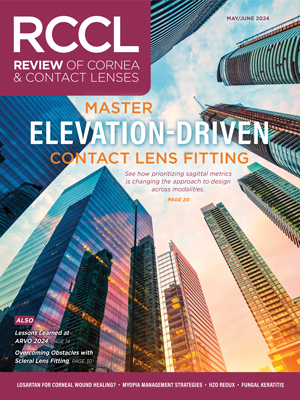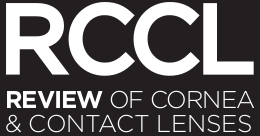In the News
Starting May 1st, British Columbia residents will be able to purchase contact lenses and ophthalmic glasses online without a prescription or eye exam from an eye care practitioner. The new legislation is intended to address complaints from patients who suggest that it’s difficult to obtain copies of their prescriptions from their eye care practitioners to legally purchase contact lenses online. But, this legislation is meeting opposition from the British Columbia Association of Optometrists (BCAO). “The BCAO intends to mount a campaign to oppose the regulatory changes being imposed on our profession,” says Antoinette Dumalo, O.D., BCAO president.
Menicon Co., Ltd. has acquired all shares of Tomey from Tomey Shoji Inc. Tomey Co., Ltd. is a major Japan-based manufacturer of contact lens care solutions, soft contact lenses and RGP materials. The company has been the contracted supplier to Menicon of contact lens care solutions and exclusive supplier of Menicon monthly replacement soft contact lenses, and latheable RGP and soft lens materials, including Menicon Z, Menicon EX, Menisoft and Menicon Soft 72. This acquisition enables Menicon to control the manufacture of its lenses and lens care products. Tomey will be renamed MeniconNect.
Art Optical has launched an additional GP lens material in the Thinsite design. Thinsite2—offered exclusively in BostonXO2 lens material—is now also available in Boston ES and Boston EO material options. Thinsite2 utilizes patented design technology combined with advanced lathing techniques to generate a thinner overall lens profile that reduces lens mass and increases oxygen transmissibility while maintaining lens stability, the company says.
Ocular Allergies On the Rise
According to a recent survey conducted by the Asthma & Allergy Foundation of America (AAFA), about 67% of allergy sufferers say that spring is the time of year when eye allergy symptoms are worst. For respondents who wear contact lenses, spring is particularly frustrating; as nearly half (45%) say that their eye-related allergy problems often prevent them from wearing their contacts, and one in ten (12%) admits to having to stop wearing their contacts because of allergies.
The majority of respondents report that they wear their lenses two weeks, one month or longer. In a recent study presented at the 87th annual meeting of the American Academy of Optometry, researchers reported that only about one-third (36%) of wearers of contact lenses prescribed for monthly replacement said that they replaced their lenses as prescribed. Over half (55%) replaced them within five weeks, 23% at eight weeks or more and 14% at ten weeks or more.1
To help allergy sufferers better understand and manage their condition, the AAFA offers a free educational brochure titled “Eye Health and Allergies.” The brochure, which also includes smart allergy season strategies for contact lens wearers, can be viewed or downloaded at www.aafa.org/eyeallergies. The brochure, along with a certificate a free-trial pair of 1- Day Acuvue Moist contact lenses, is also available at www.acuvue.com/seasons.
1. Hickson-Curran S, Chou P, Gardere J. Longer prescribed replacement intervals leads to more stretching of frequent replacement contact lenses. Presented at American Academy of Optometry Meeting, November 2009.
Board Certification
The American Board of Clinical Optometry (ABCO) is now accepting applications for board certification in general optometric practice. Board certification by the ABCO is available in the United States and Canada, and its requirements include completion of an accredited course of study resulting in an O.D. degree, passing required NBEO examinations or their equivalent and licensure by at least one state, provincial or territorial licensing body. These standards are identical to those required by State licensing boards and are typical for board certification throughout the health care professions, says ABCO.
“Recent events have created a need for a credible board certification and maintenance of certification process in optometry. No optometrist should be denied access to insurance panels or financially penalized due to a lack of board certification. The ABCO’s process for obtaining board certification respects the authority of state licensing boards and at the same time recognizes and celebrates optometric competence and ability,” says ABCO President and Executive Director, Art Epstein, O.D., F.A.A.O.
The ABCO has adopted a maintenance of certification (MOC) process based on the combined recommendations of the American Board of Medical Specialties, and the Association of Regulatory Boards of Optometry Council on Endorsed Licensure Mobility for Optometrists. The ABCO MOC consists of meeting specified continuing education standards combined with innovative online learning and self-assessment programs that run in five-year cycles.
For information, go to www.boardofclinicaloptometry.org.


